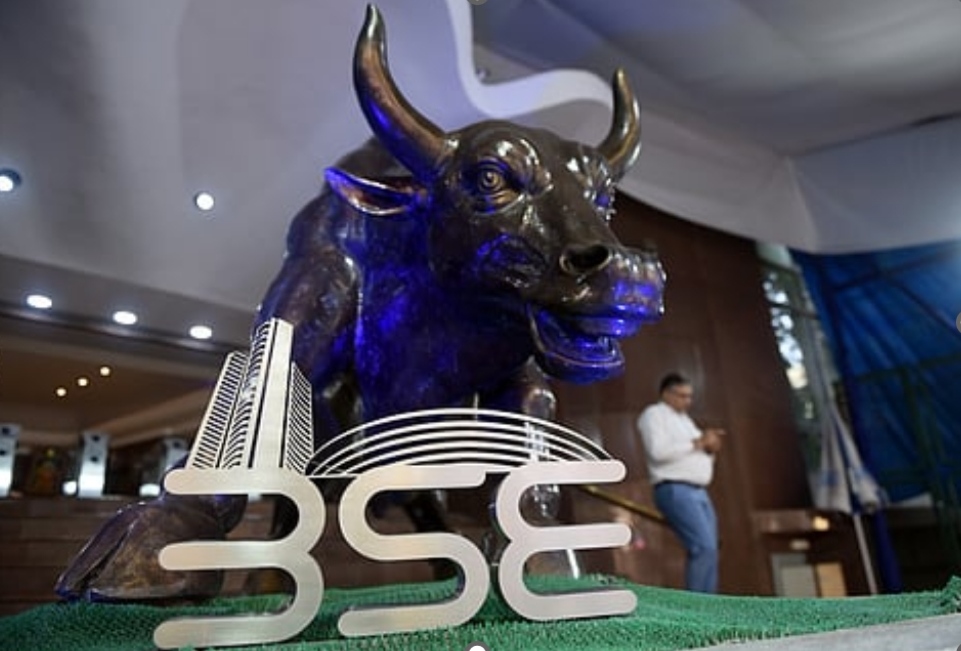Indian stock markets show resilience amidst global shock on Trump tariffs

India’s pharma stocks helped withstand the global market turmoil – can this last? India’s been slapped by a 26% Trump’s tariff on exports to the US. India’s IT company have felt
Some shock by this idiotic step but Indian investors are already giving back to the Americans by betting big on pharmaceutical stocks.
They do have a reason. Stock markets crash in the US, Europe and Asia – and yet, India’s Sensex seems to be standing up the storm. UK, France, other G7 nations are livid but crying down on their knees.
Xi Jinping has retaliated by hitting USA with a hammer blow of 34% reciprocal tariff. Only Modi remains unfazed, which means likely trouble for Trump in the future unless he negotiates with Delhi.
Over the last two days after US President Trump announced his tariff rate card, the Sensex has come down just over 1,200 points, with 930 points being shed on Friday (April 4).
Now, the 930 points might seem steep, but that’s 1.22% down which compares well to the 2.75% decline for the Nikkei, 1.52% for Hang Seng, and 2.95% for the Singapore index.
Once markets open next week, investors have to factor in China’s 34% counter tariffs that it announced on Friday. “Which could mean more pressure on Asian stock markets other than India’s,” said an analyst.
So, in these two days, India has withstood up to the worst of the global selloff pressures – and also saw the rupee firming up somewhat against the dollar.
(The INR inched higher to 23.20 to the dirham or 85.22 to a dollar and 51.6 to Australian dollar.) This even after standing upto a 26% import tariff on goods and services by Trump.
A lot of the resilience of Indian stock markets this week had to do with pharmaceuticals which Trump just could not afford to touch.
“The pharma stocks actually led the gains, rising 2.25%, buoyed by temporary tariff exemptions, while India’s public sector banks and media followed with strong performances,” said Milan Vaishnav, founder and Technical Analyst, ChartWizard.ae
“In contrast, the IT sector tumbled over 4%, reflecting investor concerns over its heavy exposure to the US, which has imposed a 26% reciprocal tariff on India.”
The auto sector stocks also had a climb down, not surprising given that the US has imposed 25% separately on automobiles and auto parts.India’s metal stocks also ‘declined on fears of weakened export competitiveness and rising input costs’, said Vaishnav.
Based on media reports, India plans to come up with some sort of arrangement with the US to bring down the severity of the 26% duty.
If so, the IT services, for which the US is a major market, will be an immediate beneficiary.
Institutional flows
Other reasons also came into play.“Foreign institutional investors (FIIs) turned aggressive buyers toward the end of March, with a massive inflow of Rs111.1 billion on March 27, helping lift market sentiment,” said Vaishnav.
“However, this was followed by sharp outflows post the US tariff announcement, with net selling of Rs59.02 billion over April 1 and 2.
“In contrast, domestic institutional investors (DIIs) – including mutual funds – continued to support the market, recording steady inflows of Rs 43.23 billion and Rs 28.09 billion on April 1 and 2.
“This reflects a shift in balance, with domestic money providing a cushion against global uncertainty-led FII volatility.”
Of course, next week will show whether Indian stock markets will remain reasonably cushioned – or become part of the one big global sell-off.
What investors should look for in Indian stocks?
According to Vikas Jain, Head of Research at Reliance Securities.Concerns about slower economic growth in the US may negatively impact offshore revenue for domestic IT companies.
Pharma stocks may perform well after US President Donald Trump refrained from making any specific reciprocal tariff announcements regarding the pharmaceutical sector.
Public sector bank stocks may also rise, driven by the falling 10-year G-Sec yield to a two-year low and expectations that the RBI may cut interest rates next week.
The rally in textile stocks is likely to continue, as US President Donald Trump’s decision to impose tariffs gives India’s textile industry a competitive advantage, while competitors like Vietnam, Bangladesh, and China will face higher tariffs.




